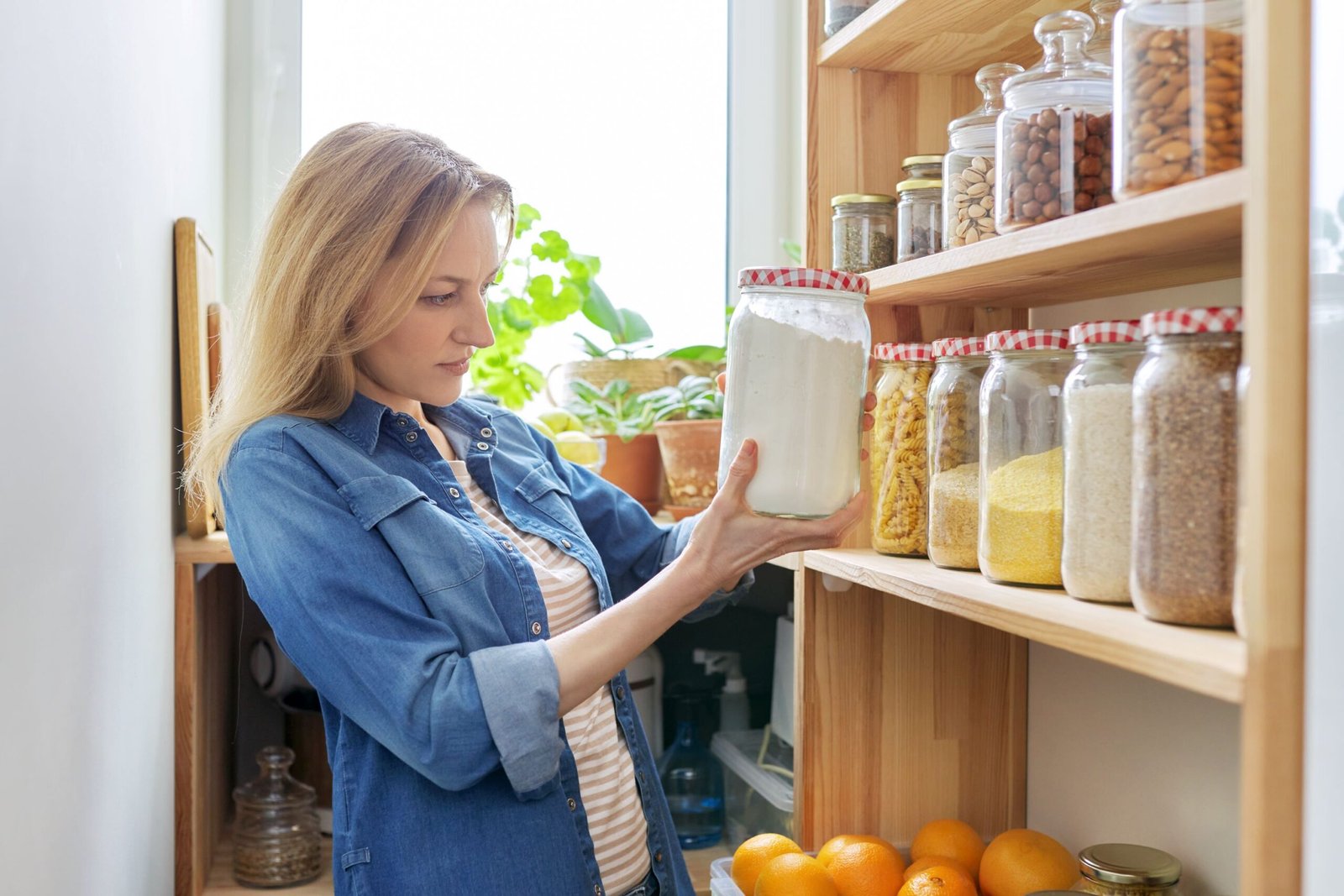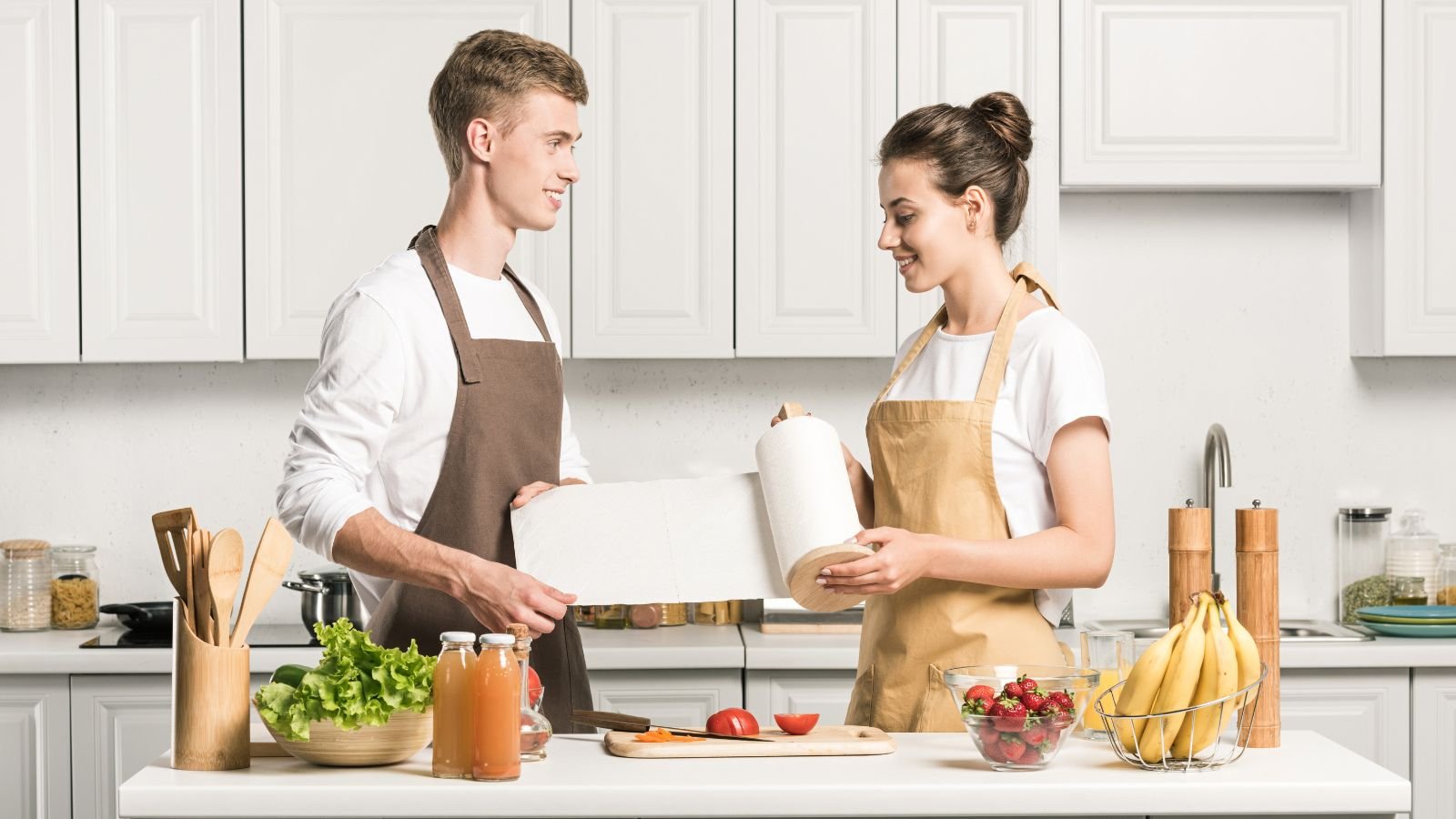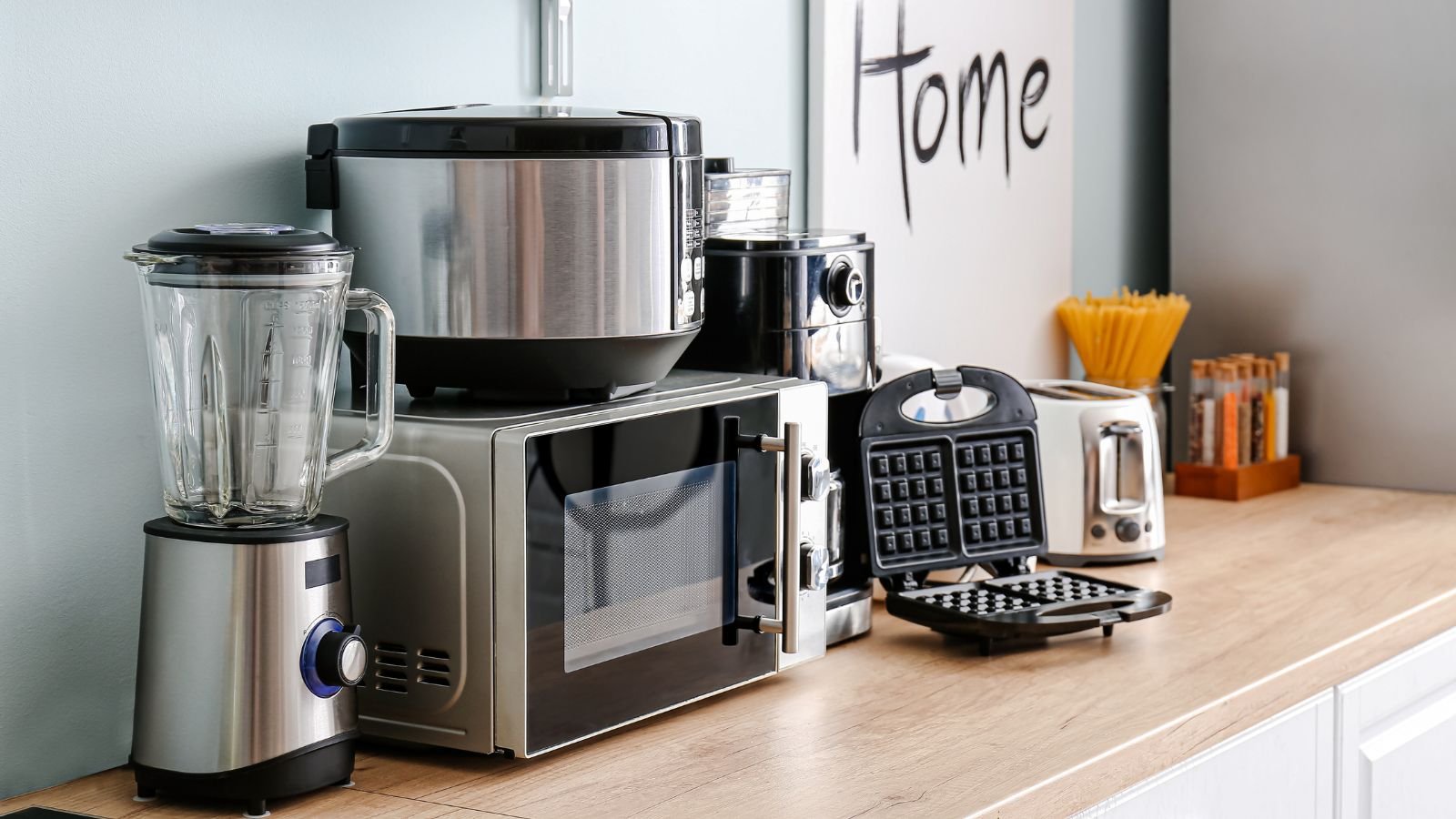Our kitchens often become storage spaces for items we no longer use or need, leading to unnecessary clutter. From scratched cookware to unused appliances, these items take up valuable space and pose health and safety risks. Decluttering your kitchen by getting rid of these useless things can make cooking more enjoyable and your kitchen more efficient.
Scratched Non-Stick Pans

Even though modern non-stick cookware is typically deemed safe, it is still crucial to exercise caution. Damaged non-stick coatings may peel away and contaminate food, negatively impacting your health. Moreover, once Teflon coatings surpass 570°F (300°C), they can reach their breaking point, releasing hazardous fumes into the air. These fumes can induce a temporary, flu-like condition called polymer fume fever. The Teflon coating may deteriorate if your non-stick cookware is old or damaged. It’s essential to replace it to avoid exposure to toxic fumes.
Chipped Serveware

Damage in your serving dishes could present a significant danger to your health. These flaws can result in small gaps that allow moisture and bacteria to enter, leading to unsanitary dishes. Moreover, chipped ceramic pieces can also detach and contaminate your food, leading to possible harm. Make sure to buy new, high-quality replacements that guarantee your meals are served safely and hygienically.
Stained Kitchen Towels and Gloves

Dirty kitchen towels and gloves can serve as ideal breeding grounds for dangerous bacteria and germs to reproduce. These bacteria can easily move onto your food, which could result in foodborne sickness. Frequent washing is essential for maintaining hygiene and is not open for discussion. Utilize warm water and disinfectant for efficient germ elimination, and substitute old items to stop germ transmission.
BPA Plastic Containers

BPA, a chemical found in certain plastic containers, has been classified as an endocrine disruptor, causing interference with the body’s hormone production. Research indicates that exposure to BPA may be connected to brain and behavioral issues in fetuses and young children, abnormal urinary tract development, formation of lesions in the prostate gland, and premature puberty in females.
Although the National Toxicology Program has assessed the worry for these impacts ranging from “minimal” to “some concern,” it is advisable to be cautious. If you possess old plastic containers, swap them with BPA-free options to reduce potential health dangers.
Old Water Filters

Water pitchers with built-in filters are great for providing your family with purified water without relying on bottled water. However, an old filter can harbor bacteria and contaminants that can make you sick. Filters may become less efficient at removing unwanted flavors and smells from your water. It’s important to remember to replace old filters every 40 gallons or so to ensure you’re drinking clean water.
Stale Pantry Staples

There’s a high chance that your pantry contains expired or stale items. Studies indicate that Americans throw away an astonishing 60 million tons of food yearly, with pantry essentials playing a significant role. Misunderstandings about expiration labels and a lack of food appreciation frequently lead to this waste.
To lessen food waste in your pantry, it is essential to master the skill of correctly interpreting expiration labels. Learn the distinction between “sell by,” “use by,” and “best by” dates. Ensure you adhere to storage recommendations to prolong their expiration date. Adopting a “first come, first served” approach can be used to avoid waste. Finally, discard any stale food, and remember to inspect your pantry regularly to prevent future spoilage.
Freezer-Burned Food

Freezer burn happens when food comes into contact with air while frozen, leading to loss of moisture, alterations in taste, and a firm, parched consistency. Common indications of freezer burn include gray or brown patches on meat, ice crystals on ice cream or within the packaging, a cracking noise when pressing meat wrapped in butcher paper etc.
To avoid freezer burn, pack and store food correctly. Use sealed containers or freezer bags to reduce contact with air. Furthermore, avoid overcrowding the freezer sections to promote adequate airflow. Refer to the US FDA food storage chart for specific recommendations on how to store food.
Takeout Cutlery

Disposable cutlery used for carry-out food orders generates a significant quantity of plastic trash. To reduce your environmental impact, opt for reusable utensils whenever possible. Additionally, consider buying a portable utensil set to keep handy in your bag or car for convenient use while on the go.
Expired Cleaning Supplies

Cleaning products may not have expiration dates like food, but they do lose their effectiveness over time, reducing their ability to disinfect and sanitize your home. This decline in potency can result in dangerous bacteria lingering on surfaces, increasing health risks. Regularly checking and replacing old cleaning supplies is essential for a clean and safe environment.
Most cleaning products can be safely disposed of down the drain, as they are formulated not to harm the beneficial bacteria in septic systems. Over 30% of American households rely on septic systems, so proper disposal is essential to keeping these systems functioning properly.
Plastic Grocery Bag Stash

Plastic bags can pile up rapidly, especially with frequent grocery shopping. Not only do they cause inconvenience, but they also present a major environmental risk. Eliminating your collection of plastic bags is crucial to minimizing your environmental footprint and organizing your kitchen better.
Multiple states in the US have enforced restrictions on single-use plastic bags to combat their ecological consequences. To prevent gathering additional plastic bags, use reusable bags, choose paper bags or boxes, and try the same-day delivery feature of goods while shopping online to reduce packaging.
Eliminate Paper Clutter

Paper clutter in the kitchen can quickly become overwhelming, especially with fridge notes and takeaway menu cards piling up. Outdated notes and old menus not only clutter your space but also make it harder to stay organized. Take a few minutes to sort through these items, discarding anything unnecessary or irrelevant. Instead of keeping physical copies, consider using a digital notepad or soft copies of your favorite menus. This simple step will help you maintain a cleaner, more organized kitchen while reducing paper waste, which also benefits the environment by lowering the demand for paper production.
Unused Kitchen Appliances

Unused kitchen appliances take up valuable space and contribute to clutter in your kitchen. These appliances, often forgotten and collecting dust, can create unnecessary stress and make your kitchen less functional. By donating or recycling appliances you no longer use, you can free up counter and storage space, making your kitchen more efficient and enjoyable to use.
